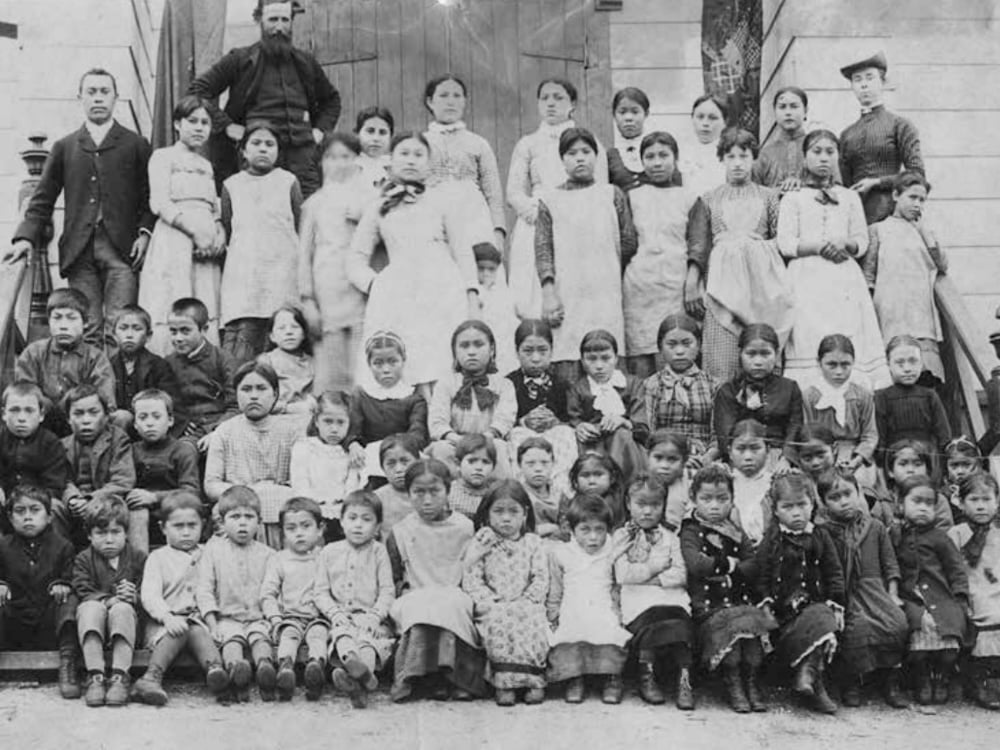Top Stories
Reflecting on Canada’s Residential School Legacy Ten Years On

The legacy of Canada’s residential schools remains a significant chapter in the nation’s history, underscoring the need for ongoing reflection and action. On March 31, 2015, the Truth and Reconciliation Commission (TRC) released a landmark report detailing the systemic abuses faced by Indigenous children in these institutions. This report has become essential reading for understanding the profound impact of these schools on Indigenous communities across Canada.
The TRC’s findings highlighted the experiences of over 150,000 Indigenous children who were forcibly taken from their families and placed in residential schools, where many suffered physical, emotional, and sexual abuse. The report characterized this policy as cultural genocide, emphasizing the long-lasting effects on Indigenous communities. It called for a national reckoning and a commitment to reconciliation, urging all Canadians to engage with this painful history.
Key Findings and Recommendations
Among the report’s most impactful elements were its 94 calls to action, which aimed to foster reconciliation between Indigenous and non-Indigenous Canadians. These recommendations spanned various sectors, including education, health care, and justice, advocating for systemic changes to address the inequalities faced by Indigenous peoples. For instance, the report urged the government to provide adequate funding for Indigenous education and to integrate Indigenous history and culture into Canadian curricula.
In the years since the report’s release, some progress has been made. The establishment of the National Day for Truth and Reconciliation on September 30 has allowed Canadians to reflect on the injustices faced by Indigenous peoples. However, many advocates argue that substantial work remains to be done to fulfill the TRC’s calls to action.
Ongoing Impact and Community Voices
The impacts of residential schools continue to resonate deeply within Indigenous communities. Survivors and their families often grapple with intergenerational trauma, which has manifested in various social challenges, including mental health and addiction issues. Many community leaders emphasize the need for more robust support systems to help heal these wounds.
Indigenous advocates underscore the importance of education in promoting understanding and healing. They call on non-Indigenous Canadians to engage with this history actively and to participate in reconciliation efforts. “It is vital for all Canadians to understand the truth of our past,” said Senator Murray Sinclair, the former chair of the TRC. “Only through acknowledgement and education can we hope to move forward together.”
As Canada reflects on a decade since the TRC’s report, the commitment to reconciliation remains a pressing topic. The journey toward healing is ongoing, and it requires collective effort from all Canadians to ensure that the mistakes of the past are not repeated.
The legacy of the residential school system is a reminder of the importance of acknowledging history and working towards a more equitable future. Engaging with the TRC’s report and its recommendations is a crucial step for individuals, communities, and governments alike. The aim is not only to remember the past but to build a foundation for a more inclusive society that honors the rights and dignity of Indigenous peoples.
-

 Science2 months ago
Science2 months agoToyoake City Proposes Daily Two-Hour Smartphone Use Limit
-

 Health2 months ago
Health2 months agoB.C. Review Reveals Urgent Need for Rare-Disease Drug Reforms
-

 Top Stories2 months ago
Top Stories2 months agoPedestrian Fatally Injured in Esquimalt Collision on August 14
-

 Technology2 months ago
Technology2 months agoDark Adventure Game “Bye Sweet Carole” Set for October Release
-

 World2 months ago
World2 months agoJimmy Lai’s Defense Challenges Charges Under National Security Law
-

 Technology2 months ago
Technology2 months agoKonami Revives Iconic Metal Gear Solid Delta Ahead of Release
-

 Technology2 months ago
Technology2 months agoSnapmaker U1 Color 3D Printer Redefines Speed and Sustainability
-

 Technology2 months ago
Technology2 months agoAION Folding Knife: Redefining EDC Design with Premium Materials
-

 Technology2 months ago
Technology2 months agoSolve Today’s Wordle Challenge: Hints and Answer for August 19
-

 Business2 months ago
Business2 months agoGordon Murray Automotive Unveils S1 LM and Le Mans GTR at Monterey
-

 Lifestyle2 months ago
Lifestyle2 months agoVictoria’s Pop-Up Shop Shines Light on B.C.’s Wolf Cull
-

 Technology2 months ago
Technology2 months agoApple Expands Self-Service Repair Program to Canada









